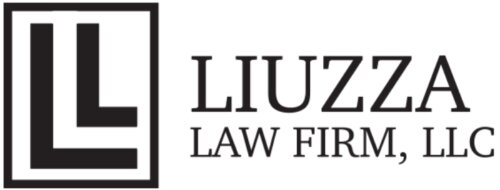Best Toxic Mold Lawyers in New Orleans
Share your needs with us, get contacted by law firms.
Free. Takes 2 min.
List of the best lawyers in New Orleans, United States
About Toxic Mold Law in New Orleans, United States
Toxic mold, also known as black mold, can pose serious health risks to individuals exposed to it. In New Orleans, United States, there are specific laws and regulations in place to address issues related to toxic mold in residential and commercial properties.
Why You May Need a Lawyer
If you suspect that your property has toxic mold, you may need a lawyer to help you navigate the legal process. A lawyer can assist you in determining liability, filing a claim against responsible parties, and seeking compensation for damages caused by toxic mold exposure.
Local Laws Overview
In New Orleans, property owners have a legal obligation to maintain a safe and habitable environment for tenants. If toxic mold is present in a rental property, the landlord may be held liable for any resulting health issues or property damage. Additionally, tenants have the right to request mold inspections and remediation from landlords.
Frequently Asked Questions
Q: What are the common health risks associated with toxic mold exposure?
A: Common health risks include respiratory issues, allergies, asthma, skin irritation, and even neurological symptoms.
Q: How can I determine if my property has toxic mold?
A: If you notice a musty odor, visible mold growth, or experience unexplained health symptoms, it's important to conduct a mold inspection.
Q: Can I sue my landlord for toxic mold exposure?
A: Yes, you may be able to hold your landlord accountable for failing to address toxic mold issues in your rental property.
Q: What should I do if I find toxic mold in my property?
A: Notify your landlord immediately and document the mold growth with photos. You may also consider seeking legal advice to protect your rights.
Q: How long do I have to file a legal claim for toxic mold exposure?
A: The statute of limitations for toxic mold claims can vary, so it's crucial to consult with a lawyer as soon as possible.
Q: Can I be compensated for damages caused by toxic mold exposure?
A: Yes, you may be entitled to compensation for medical expenses, property damage, lost wages, pain and suffering, and other related costs.
Q: What evidence should I gather to support my toxic mold claim?
A: It's important to keep records of any medical diagnoses, treatment invoices, inspection reports, correspondence with your landlord, and photos of the mold growth.
Q: Is there a government agency in New Orleans that oversees toxic mold issues?
A: The Louisiana Department of Health and Hospitals is responsible for regulating mold-related issues in the state.
Q: Can I handle a toxic mold claim on my own without a lawyer?
A: While it's possible to handle a claim on your own, consulting with a lawyer experienced in toxic mold cases can help ensure your rights are protected and maximize your chances of a successful outcome.
Q: How much does it cost to hire a lawyer for a toxic mold case?
A: Many lawyers offer free consultations for toxic mold cases and may work on a contingency fee basis, meaning they only get paid if you receive compensation.
Additional Resources
For additional information and resources on toxic mold in New Orleans, you can contact the Louisiana Department of Health and Hospitals or seek guidance from the New Orleans Bar Association.
Next Steps
If you suspect toxic mold in your property or have been exposed to toxic mold and need legal assistance, it's important to consult with a qualified lawyer who specializes in toxic mold cases. They can help you understand your rights, navigate the legal process, and seek the compensation you deserve.
Lawzana helps you find the best lawyers and law firms in New Orleans through a curated and pre-screened list of qualified legal professionals. Our platform offers rankings and detailed profiles of attorneys and law firms, allowing you to compare based on practice areas, including Toxic Mold, experience, and client feedback.
Each profile includes a description of the firm's areas of practice, client reviews, team members and partners, year of establishment, spoken languages, office locations, contact information, social media presence, and any published articles or resources. Most firms on our platform speak English and are experienced in both local and international legal matters.
Get a quote from top-rated law firms in New Orleans, United States — quickly, securely, and without unnecessary hassle.
Disclaimer:
The information provided on this page is for general informational purposes only and does not constitute legal advice. While we strive to ensure the accuracy and relevance of the content, legal information may change over time, and interpretations of the law can vary. You should always consult with a qualified legal professional for advice specific to your situation.
We disclaim all liability for actions taken or not taken based on the content of this page. If you believe any information is incorrect or outdated, please contact us, and we will review and update it where appropriate.








